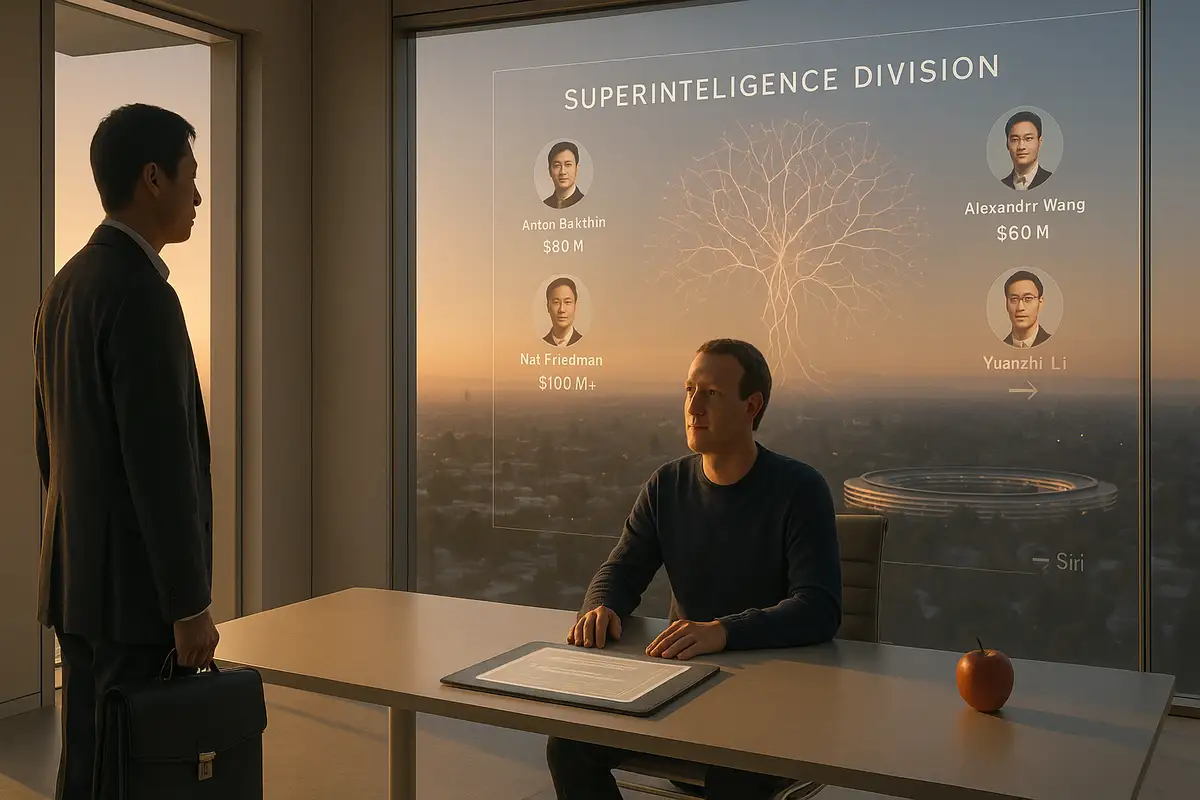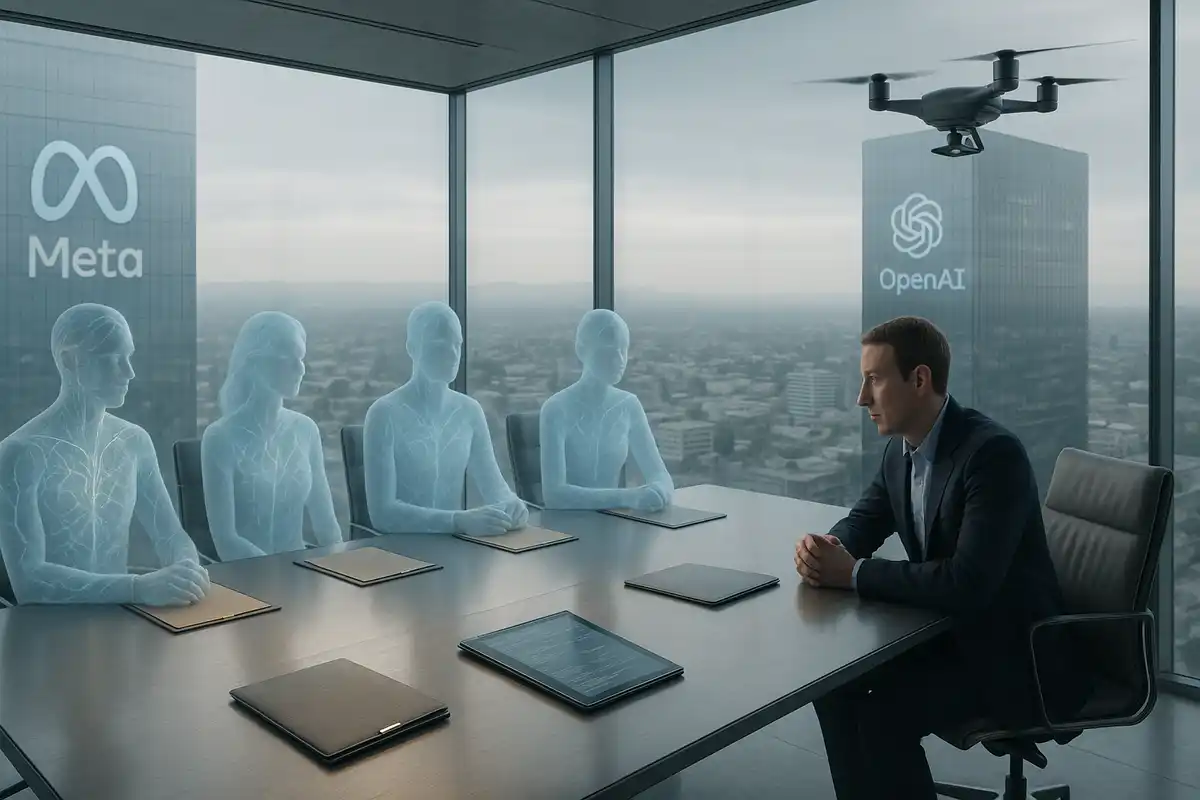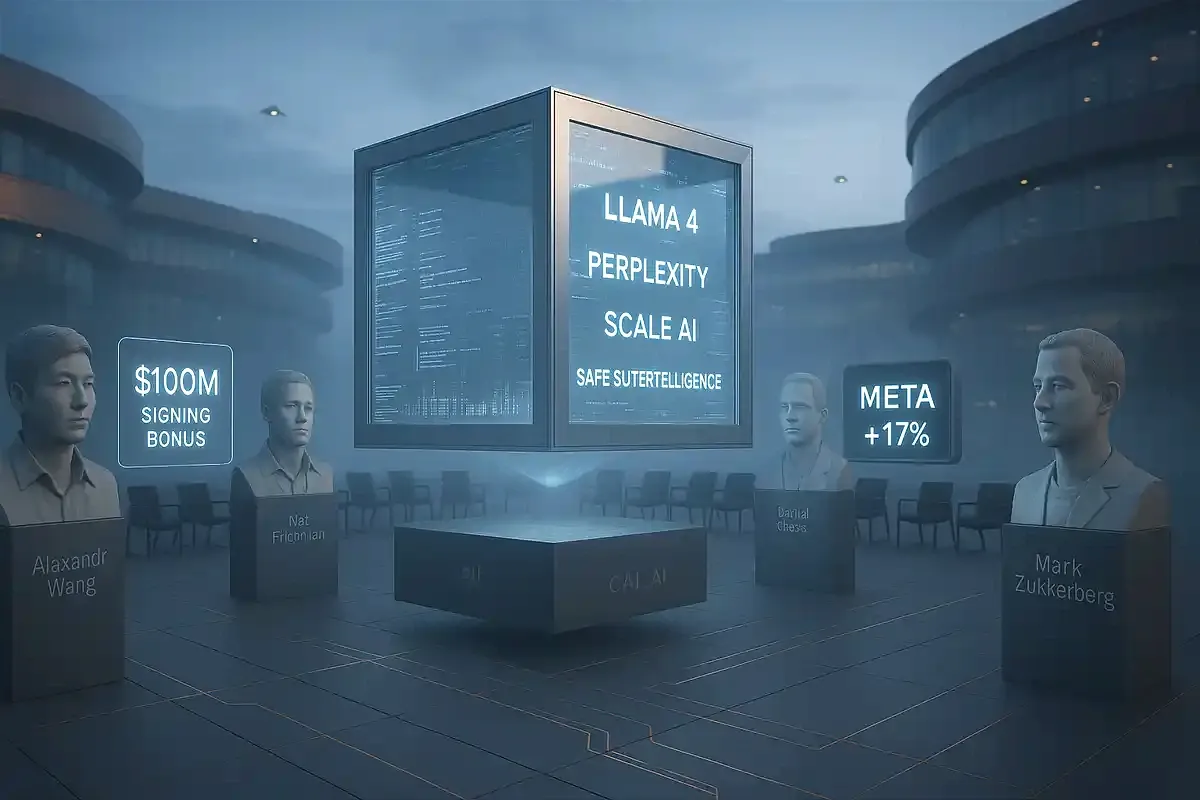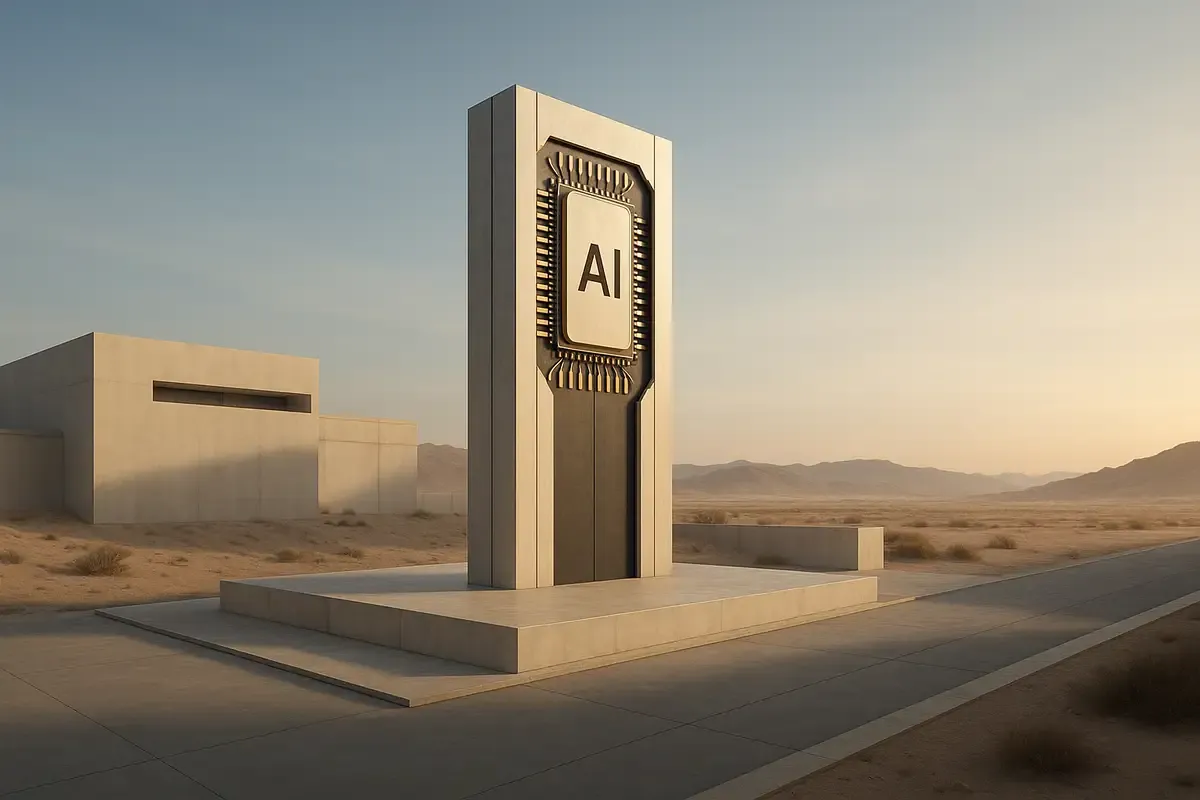💡 TL;DR - The 30 Seconds Version
🔄 Meta abandons its open-source AI strategy after years of promoting "democratized" artificial intelligence for all.
💰 Zuckerberg offers packages worth up to $300 million over four years to poach top researchers from OpenAI and other competitors.
👨💼 Meta hired Alexandr Wang as chief AI officer after buying 49% of his company Scale AI for $14.3 billion in June.
📊 The company invests $65 billion in AI infrastructure this year while Wall Street demands clearer returns on spending.
🏢 Internal dysfunction plagues Meta's AI division, with employees expecting an exodus when stock vesting ends in August.
🌍 The shift signals that even tech CEOs who preached AI democratization choose profits when competitive pressure mounts.
Mark Zuckerberg spent years preaching the gospel of open-source AI. He told the world that everyone should benefit from artificial intelligence. He made Meta's code free for competitors to copy and improve. That sermon is ending.
The Facebook founder is executing a complete reversal of his AI strategy, according to reporting from Bloomberg, the New York Times, and Harvard Business Review. He's abandoning open-source models, poaching competitors' top talent with nine-figure pay packages, and installing new leadership focused on one thing: making money from his $65 billion AI investment.
The shift marks the end of an experiment that never quite made sense. Why would a company built on harvesting user data suddenly embrace AI altruism? The answer, as Bloomberg's Parmy Olson notes, is that it didn't. Zuckerberg was playing a longer game.
The Open-Source Ruse
Meta's Llama models were never really about democratizing AI. They were about getting free labor. Thousands of developers bought into Zuckerberg's vision and improved his code for nothing. The company attracted top researchers who wanted their work to reach millions immediately rather than get buried behind corporate walls.
The strategy worked. Meta built a reputation as AI's reluctant hero while Chinese military researchers used Llama to create their own intelligence tools. Other teams built "BadLlama" models with no safety features. The risks grew as the models became more capable.
Zuckerberg already started backing away from pure open-source last year. He told podcaster Dwarkesh Patel that being "dogmatic" about open-source software was wrong. If releasing AI became irresponsible, "then we won't," he said.
Now he won't.
The Talent War
Zuckerberg isn't just changing his software philosophy. He's conducting an unprecedented raid on his competitors' research teams. The CEO personally emails and WhatsApp messages his targets, believing his direct outreach carries more weight than a faceless recruiter, the Wall Street Journal reported.
The numbers are staggering. Meta offered packages worth up to $300 million over four years to OpenAI staffers, according to Wired. OpenAI CEO Sam Altman says Meta dangled signing bonuses of $100 million to his top people. At least seven OpenAI researchers have jumped ship.
OpenAI's chief research officer Mark Chen compared the poaching to someone breaking into his home and stealing something. But Altman fought back with counteroffers and claims his "best people" stayed put.
The crown jewel of Zuckerberg's hiring spree is Alexandr Wang, the 28-year-old founder of Scale AI. Meta bought a 49% stake in Wang's company for $14.3 billion in June, then installed him as chief AI officer of the newly renamed "Meta Superintelligence Labs."
The New Sheriff
Wang now leads an exclusive team of about a dozen newly hired researchers working in a siloed office next to Zuckerberg at Meta's Menlo Park headquarters. In a recent all-hands meeting with Meta's 2,000 AI workers, Wang announced that his small team's work would be private while the entire division focused on creating "superintelligence."
The timing isn't coincidental. Meta finished training its latest flagship model, called "Behemoth," but delayed its release due to poor internal performance, the New York Times reported. After the superintelligence lab formed, teams stopped running new tests on Behemoth. The model might never see daylight as an open-source release.
Internal discussions now center on developing closed models instead. The conversations are preliminary and need Zuckerberg's approval, but the direction is clear. Meta is preparing to lock up its most advanced AI.
The Money Problem
Wall Street forced this pivot. Investors want returns on Meta's massive AI spending. The company is pouring $65 billion into infrastructure this year alone while competing against better-funded rivals like OpenAI and Google's DeepMind.
Zuckerberg has a track record of patience. He spent $19 billion on WhatsApp in 2014 and waited a decade before adding ads to the messaging app. But AI moves faster than social media. The competitive window is narrower.
The CEO's hiring of Wang signals serious monetization intent. Wang built Scale AI into a profitable data-labeling business that serves major tech companies. He knows how to turn AI research into revenue streams.
The Culture Problem
Aggressive poaching creates new problems. Harvard Business Review's Katie Shonk warns that hiring superstars often leads to clashing egos and infighting. Meta may be learning this lesson firsthand.
The company's broader AI division suffers from "a grueling pace of product development, infighting among team leaders and a tight labor market," the New York Times reported. Some researchers are already fleeing to competitors to escape the dysfunction.
Employees expect an exodus in August when the next stock vesting period ends. Workers not chosen for Wang's elite team may look elsewhere. The talent war cuts both ways.
OpenAI's Altman predicts Zuckerberg's strategy will fail. "Saying 'we're just going to try to copy OpenAI' basically never works," he said on the Uncapped podcast. "You don't build up a culture of learning what it's like to innovate."
The Bigger Shift
Meta's pivot reflects broader changes in AI development. OpenAI started as a nonprofit pledging to share research with everyone. It became secretive after taking Microsoft's money. The pattern repeats across Silicon Valley: give products away until you dominate the market, then monetize.
The shift carries real consequences. Open-source AI addresses the concentration of power among a few tech companies. But free models that approach human intelligence raise obvious risks. Zuckerberg likely faces pressure from Washington and overseas regulators to think carefully about releasing superintelligent systems.
The legal landscape is shifting too. The Trump administration appears ready to let the national ban on noncompete agreements lapse. That could loosen restrictions on no-poach agreements between companies, though the current talent war suggests those barriers already mean little.
Meta's strategy represents a calculated bet that closed AI will prove more valuable than open research. Zuckerberg is trading his reputation as AI's reluctant hero for a shot at controlling the next phase of artificial intelligence development.
The free ride is ending. The real competition is just beginning.
Why this matters:
• Zuckerberg's reversal signals that even tech CEOs who preached AI democratization will choose profits when the stakes get high enough.
• The talent war between AI companies is reshaping the entire field, with researchers becoming the new oil in a race to build superintelligent systems.
❓ Frequently Asked Questions
Q: What exactly is "superintelligence" that Meta is trying to build?
A: Superintelligence refers to AI that surpasses human intelligence in most tasks. While the exact definition remains unclear, it represents AI systems smarter than humans across cognitive abilities rather than just specific tasks like chess or image recognition.
Q: How much is Meta spending on AI compared to its competitors?
A: Meta is investing $65 billion in AI infrastructure this year alone. For comparison, OpenAI raised $6.6 billion in October 2024, while Google's parent Alphabet spent about $31 billion on R&D across all projects in 2023.
Q: What happened to Meta's "Behemoth" AI model?
A: Meta finished training Behemoth but delayed its release due to poor internal performance. After forming the superintelligence lab, teams stopped running new tests on it. The model may never be released as open-source.
Q: Is it legal for companies to poach employees with huge pay packages like this?
A: Yes, aggressive recruiting is legal. U.S. antitrust law actually prohibits no-poach agreements between companies. In 2015, Apple, Google, Intel, and Adobe paid $415 million to settle a lawsuit for illegally agreeing not to steal each other's employees.
Q: What is Scale AI and why did Meta buy nearly half of it?
A: Scale AI is a data-labeling company that helps train AI models. Meta paid $14.3 billion for a 49% stake because Scale's founder Alexandr Wang knows how to turn AI research into profitable business models.
Q: How big is Meta's AI workforce compared to other tech companies?
A: Meta employs about 2,000 AI workers. OpenAI has roughly 1,500 employees total, while Google's DeepMind has around 2,500 researchers. The new superintelligence lab consists of just 12 elite researchers working directly with Zuckerberg.
Q: What are the actual risks of giving away powerful AI models for free?
A: Chinese military researchers used Meta's Llama to build ChatBIT, an intelligence tool for gathering data and making operational decisions. Other teams created "BadLlama" with no safety features, which wouldn't be possible with closed systems like ChatGPT.
Q: When might we see Meta's new closed AI models?
A: Meta's internal discussions about closed models are preliminary and need Zuckerberg's approval. Based on the pattern with WhatsApp, which took 10 years to monetize, expect announcements within the next year as competitive pressure mounts.
















